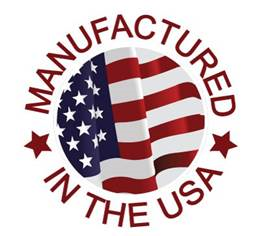
Alloys
CDA Copper No. C 110 00
 PDF DOWNLOAD
PDF DOWNLOAD
Electrolytic Tough Pitch
COMPOSITION (%)
| Nominal | Minimum | Maxiumum | |
|---|---|---|---|
| Copper | — | 99.90 | — |
| Oxygen | .04 | — | — |
PHYSICAL PROPERTIES
| English Units | C.G.S. Units | |
|---|---|---|
| Melting Point (Liquidus) | 1981°F | 1083°C |
| Melting Point (Solidus) | 1,949°F | 1,065°C |
| Density | .321-.323 lb./cu. in. @ 68°F | 8.89-8.94 gm./cu. cm. @ 20°C |
| Specific Gravity | 8.89-8.94 | 8.89-8.94 |
| Coefficient of Thermal Expansion | .0000094 per °F from 68°F to 212°F | .0000170 per °C from 20°C to 100°C |
| Coefficient of Thermal Expansion | .0000096 per °F from 68°F to 392°F | .0000173 per °C from 20°C to 200°C |
| Coefficient of Thermal Expansion | .0000098 per °F from 68°F to 572°F | .0000177 per °C from 20°C to 300°C |
| Thermal Conductivity | 226 Btu./sq. ft./ft./hr./°F @ 68°F | .934 cal./sq. cm./sec./°C @ 20°C |
| Electrical Resistivity (Annealed) | 10.3 Ohms (circ. mil./ft.) @ 68°F | 1.71 Microhm-cm @ 20°C |
| Electrical Conductivity* (Annealed) | 100% IACS @ 68°F | .586 Megohm-cm @ 20°C |
| Thermal Capacity (Specific Heat) | .092 Btu./lb./°F @ 68°F | .092 cal./gm./°C @ 20°C |
| Modulus of Elasticity (Tension) | 17,000,000 psi | 12,000 Kg./sq. mm |
| Modulus of Rigidity | 6,400,000 psi | 4,500 Kg./sq. mm |
*Volume and weight basis
MECHANICAL PROPERTIES
| Size Section | Temper | Tensile Strength psi | Yield Strength (.5% Extension Under Load) psi | Reduction of Area % | Elongation in 2” % | Rockwell Hardness | Shear Stength psi | Fatigue Strength | |||
|---|---|---|---|---|---|---|---|---|---|---|---|
| F | B | 30T | psi | Million Cycles | |||||||
| Flat Products | |||||||||||
| 0.040 in. | 0.050 mm | 32,000 | 10,000 | — | 45 | 40 | — | — | 22,000 | — | — |
| 0.025 mm | 34,000 | 11,000 | — | 45 | 45 | — | — | 23,000 | 11,000 | 100 | |
| Eighth Hard | 36,000 | 28,000 | — | 30 | 60 | 10 | 25 | 25,000 | — | — | |
| Quarter Hard | 38,000 | 30,000 | — | 25 | 70 | 25 | 36 | 25,000 | — | — | |
| Half Hard | 42,000 | 36,000 | — | 14 | 84 | 40 | 50 | 26,000 | 13,000 | 100 | |
| Hard | 50,000 | 45,000 | — | 6 | 90 | 50 | 57 | 28,000 | 13,000 | 100 | |
| Spring | 55,000 | 50,000 | — | 4 | 94 | 60 | 63 | 29,000 | 14,000 | 100 | |
| Extra Spring | 57,000 | 53,000 | — | 4 | 95 | 62 | 64 | 29,000 | — | — | |
| As Hot Rolled | 34,000 | 10,000 | — | 45 | 45 | — | — | 23,000 | — | — | |
| 0.250 mm | 0.050 mm | 32,000 | 10,000 | — | 50 | 40 | — | — | 22,000 | — | — |
| Eighth Hard | 36,000 | 28,000 | — | 40 | 60 | 10 | — | 25,000 | — | — | |
| Quarter Hard | 38,000 | 30,000 | — | 35 | 70 | 25 | — | 25,000 | — | — | |
| Hard | 50,000 | 45,000 | — | 12 | 90 | 50 | — | 28,000 | — | — | |
| As Hot Rolled | 32,000 | 10,000 | — | 50 | 40 | — | — | 22,000 | — | — | |
| 1.0 in. | Hard | 45,000 | 40,000 | — | 20 | 85 | 45 | — | 26,000 | — | — |
The values listed above represent reasonable approximations suitable for general engineering use. Due to commercial variations in composition and to manufacturing limitations, they should not be used for specification purposes. See applicable A.S.T.M. specification references.





